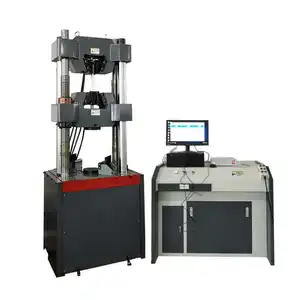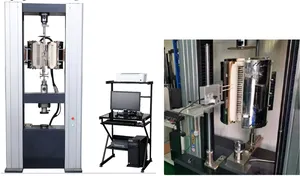Understanding Aluminum Tensile Testing
Aluminum tensile testing is a critical process in the materials science and engineering sectors, designed to assess the material's strength and ductility. This testing method is pivotal for industries that require precise measurements of aluminum's ability to withstand forces without breaking. The procedure involves stretching a sample until it fails, providing valuable data on tensile strength, yield strength, and elongation.
Types of Aluminum Tensile Tests
There are various types of tensile tests tailored to specific applications and aluminum grades. These include the standard uniaxial tensile test, which measures the material's response to a single axis of tension, and more complex tests that can simulate biaxial stress conditions. Each test type is designed to provide insights into the aluminum's performance under different conditions and uses.
Applications of Tensile Testing in Aluminum
The application of aluminum tensile testing spans across multiple industries, from aerospace to construction. In aerospace, for example, the tensile properties of aluminum alloys are crucial for ensuring the safety and integrity of aircraft components. In construction, tensile test results inform the use of aluminum in structural applications, where durability and weight considerations are paramount.
Features and Materials in Tensile Testing
Tensile testing equipment is characterized by features that ensure accuracy and repeatability, such as precise load cells and robust gripping mechanisms. The materials used for the test specimens are typically representative of the aluminum used in the final product, ensuring that the test results are relevant and reliable.
Advantages of Aluminum Tensile Testing
Aluminum tensile testing offers several advantages, including the ability to predict material behavior under stress and to identify potential issues before they lead to failure in the real world. This preemptive analysis is crucial for maintaining the integrity of aluminum structures and components across various applications.
Selecting the Right Tensile Test
When selecting a tensile test, it is important to consider the specific requirements of the aluminum application. Factors such as the expected load conditions, environmental factors, and the aluminum alloy's characteristics should guide the selection of the appropriate test method.





























 浙公网安备 33010002000092号
浙公网安备 33010002000092号 浙B2-20120091-4
浙B2-20120091-4